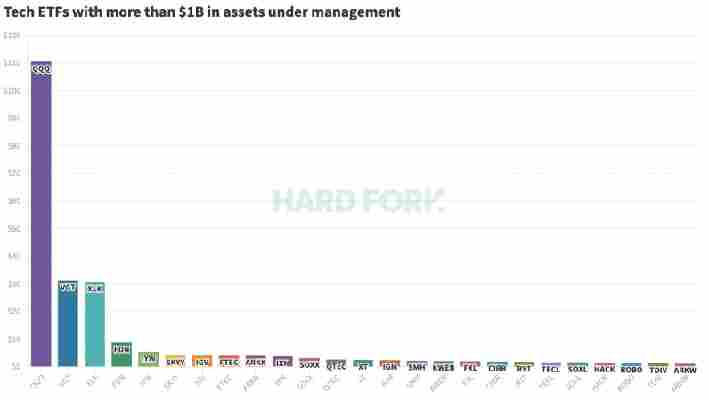The UK has opened a contract worth £100,000 ($130,000) to procure software to identify when cryptocurrency is used to avoid paying taxes.

In particular, HMRC is seeking the ability to cluster cryptocurrency transactions, identifying those linked to service providers such as mixing, gambling, and dark market services.
The contract, posted on January 17, notes the tool must track and trace Bitcoin, Bitcoin Cash, Ripple, Tether, Litecoin, Ethereum, and Ethereum Classic — the latter two it unfortunately misspelled as “Ethereium.”
Preferential treatment is pledged to those seeking to develop additional functionality to analyze more private cryptocurrencies such as Monero, Zcash, and Dash.
“Crypto assets, such as Bitcoin and Ethereum, provide a means to transfer value between interacting parties,” reads the contract. “[…] These services are increasingly used for a range of purposes, from international money transfers, sales of digital services, paying staff, and tax evasion and money laundering.”
If successfully implemented, the winning crypto-tracking solution would close HMRC’s “intelligence gaps” in use of cryptocurrency for illicit activity against the HMRC.
Tax agencies worldwide grapple with cryptocurrency
Last year, UK authorities reportedly demanded customer lists and transaction data from cryptocurrency exchanges operating locally, supposedly intent on recouping unpaid taxes from their users.
Around the same time, the US’ Internal Revenue Service sent more than 10,000 letters to cryptocurrency holders who’d sold, sent, received, or bought at least $20,000 worth of cryptocurrency between 2013 and 2015.
They were warned of penalties should they not correctly report their income or fail to pay tax on their cryptocurrency transactions. Those who received mail were asked to sign a statement confirming they’d done so correctly, under penalty of perjury.
HMRC might however be out of luck when it comes to working with more anonymous cryptocurrencies like Monero.
In December, a Europol strategy analyst noted that even the top international authorities had struggled to track transactions made on the network.
[H/T Public Technology ]
The ‘average’ Robinhood trader is no match for the S&P 500, just like Buffett
Robinhood users simply can’t catch a break. First, a series of interruptions rocked the platform on some of the most volatile days in stock market history, for which the company offered only lacklustre subscription discounts.

Now, fresh analysis has shown that the average Robinhood trader hasn’t just underperformed in 2020 — they’ve also posted 6.2% fewer returns than the S&P 500 (a basic index of top US companies) over the past two years.
Indeed, instead of making plays themselves, it appears the average Robinhood trader would’ve made more money had they simply put their money in the S&P 500 and waited.
S&P 500 beats ‘average’ Robinhood trader, all day every day
Research firm QuiverQuant’s Robinhood portal works like this : the firm uses Robinhood’s public API feeds to backtest the performance of a portfolio that’s weighted to the number of Robinhood users holding each stock.
While this public data doesn’t reveal how many shares each trader holds, it still paints a decent picture of the portfolio managed by the hypothetically “average” Robinhood trader.
What’s particularly crushing is that the S&P 500 was ahead of the average Robinhood user over the entire chart (although, the two did perform similarly for a brief period in May 2019).
Warren Buffett isn’t beating the S&P 500, either
Famed investor Warren Buffett knows this frustration all too well. After all, the Omaha Oracle has forged a legendary career by consistently outperforming the market.
But the S&P 500 has beaten his flagship fund Berkshire Hathaway over the past decade — just like the average Robinhood trader in the chart above.
In February 2019, Buffett told reporters he considered the S&P 500 “the best investment” as “most people don’t know how to pick stocks,” including himself.
Later, when asked which would make a smarter long-term investment: Berkshire or the S&P 500, Buffett told the Financial Times he figured the final result would be pretty much the same.
So, whether you’re Warren Buffett or the “average” Robinhood trader, turns out it’s tough to beat the sheer momentum powering the US’ largest companies. Go figure.
Bitcoin has returned more profit than every top-tier tech ETF this year
Exchange Traded Funds (ETFs) solve a critical problem for many investors: stock trading is both complicated and time consuming — so why not let someone else do it?

Well, only a handful of technology-focused ETFs have actually beaten the market this year. Even worse, Bitcoin has outperformed practically every top tech ETF on the market, having risen by more than 35% in 2020.
[
For scale, the NASDAQ 100 index (a popular benchmark for the tech industry) is up 12.3% for the year.
There’s an ETF out there for everyone
ETFs come in all shapes and sizes. Some, like Invesco QQQ , manage a portfolio that tracks a popular index almost identically. It’s the world’s largest tech ETF, with almost $112 billion in assets under management.
QQQ divides its billions according to the weighting of the NASDAQ 100 , which heavily favors blue chip tech giants like Microsoft, Amazon, and Apple.
The sheer size of QQQ shouldn’t be understated. It controls 45% of the all the funds managed by the 80-odd tech-focused ETFs analyzed by Hard Fork. The next two biggest tech ETFs are Vanguard’s VGT and State Street’s XLK , which both handle around $30 billion in stocks.


QQQ is for investors seeking profit from the overall growth of tech’s biggest companies. But, due to the way it distributes its portfolio, that profit is mostly tied to the gains of the NASDAQ 100 index itself: around 12.5% in 2020.
Other ETFs are passively managed. Some, like Vanguard’s VGT, take conservative approaches in trying to beat the NASDAQ 100. They invest more in a select group of heavyweights while peppering their portfolios with smaller stocks like Mastercard, Visa, and PayPal.
Funds like ARK, on the other hand, want even faster profit; picking stocks they believe will disrupt certain industries despite the added risk.
ARK’s funds are dominating 2020
Just five technology-focused ETFs with more than $1 billion under management have outperformed the NASDAQ 100 index (and by extension, QQQ) this year: iShares Expanded Tech-Software (IGV, 14.4%); First Trust ISE Cloud Computing (SKYY, 15.9%); First Trust Dow Jones Internet (FDN, 18.7%); ARKK Innovation (ARK, 29.9%); and ARK Next Generation Internet (ARKW, 34.8%).
Indeed, two of ARK’s ETFs are doing way better than the NASDAQ 100. ARKW (which features Tesla, Square, Roku, and Zillow in its top 15 holdings) is the best performing tech ETF this year.
ARKK, its flagship Innovation Fund, trails behind slightly. It boasts a portfolio that reads similarly to ARKW’s, but includes 3D-printing and biotech plays like Proto Labs and CRIPR Therapeutics.
Bitcoin, the world’s most popular cryptocurrency , has beaten both of them.
And while not an ETF, those holding shares in Warren Buffett’s flagship fund Berkshire Hathaway are likely disappointed. Berkshire stock is down more than 14% for the year, while SPY — which tracks the broader S&P 500 index in the same way that QQQ mirrors the NASDAQ 100 — is just about breaking even .
SEC still thinks Bitcoin is too ‘risky’
It should be noted that due to the varying size of the ETF portfolios, the actual monetary value of the returns generated by certain funds may exceed those that’ve performed better.
One example is QQQ. It had $88 billion under management at the start of the year, and its stocks are up 12.5%. Let’s say it kept the same investments until today: the back of the envelope math would put its hypothetical profit at just over $11 billion — almost 22 times the assets ARKW was working with on January 2.
Another thing to consider is that while BTC has indeed performed well this year, it is a markedly riskier investment than top-tier ETFs (tech or otherwise).
In fact, several firms are actively seeking to issue shares in their own Bitcoin ETFs, but after years of trying, they’re still yet to be approved by US regulators who cite concerns over whether the cryptocurrency markets suffer from widespread manipulation and fraud.
Still, when it comes to profits available to the average retail investor, it turns out the top money managers in tech just can’t beat the raw decentalized power of Bitcoin this year. Ouch.











